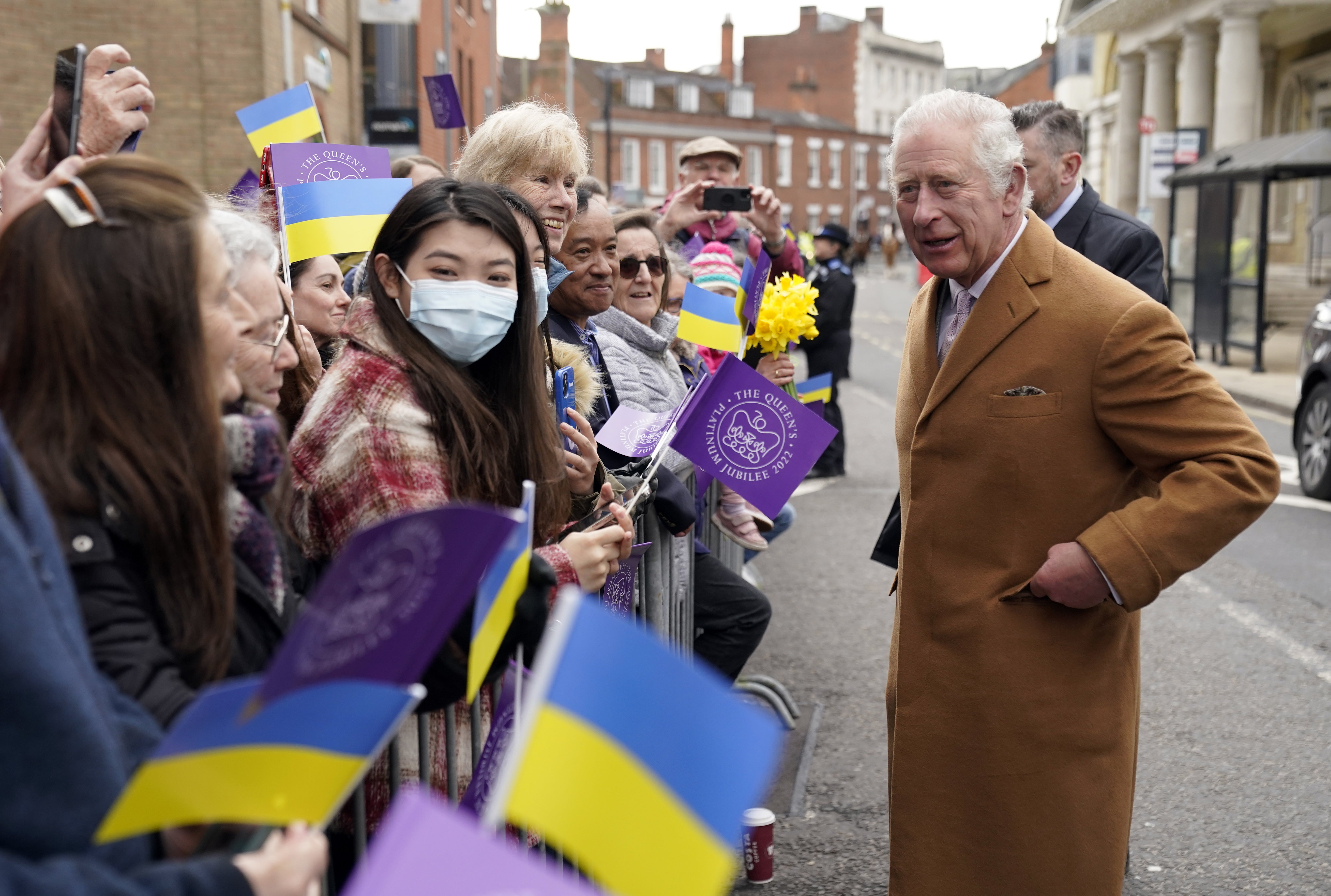Charles welcomed by crowds waving Ukrainian flags during city visit
The Prince of Wales had to postpone a visit to Winchester planned for February after contracting Covid-19.

Your support helps us to tell the story
From reproductive rights to climate change to Big Tech, The Independent is on the ground when the story is developing. Whether it's investigating the financials of Elon Musk's pro-Trump PAC or producing our latest documentary, 'The A Word', which shines a light on the American women fighting for reproductive rights, we know how important it is to parse out the facts from the messaging.
At such a critical moment in US history, we need reporters on the ground. Your donation allows us to keep sending journalists to speak to both sides of the story.
The Independent is trusted by Americans across the entire political spectrum. And unlike many other quality news outlets, we choose not to lock Americans out of our reporting and analysis with paywalls. We believe quality journalism should be available to everyone, paid for by those who can afford it.
Your support makes all the difference.The Prince of Wales was greeted by a sea of Ukrainian flags during a visit to Winchester where he praised a charity providing relief to victims of Russian aggression.
The heir to the throne travelled to the city to mark the Queen’s Platinum Jubilee and to see a statue of Licoricia, a 13th century Jewish moneylender killed in the city during a period of antisemitism.
He had been due to visit on February 10 but after testing positive for Covid-19 postponed his trip at the last minute while crowds were waiting to see him.
“I’m so sorry for the other week,” he told dignitaries.
A 750-strong crowd had gathered opposite the Licoricia statue to see the prince, many waving Ukrainian flags handed out by Hampshire County Council, which also flew the besieged country’s flag from its headquarters.
A county council spokeswoman said: “We had a vigil for Ukraine in the city on Tuesday. There’s been a very strong community reaction to the situation.”
Charles had visited the Ukrainian Catholic Cathedral on Wednesday with the Duchess of Cornwall and spoke about the “truly terrible aggression” of President Vladimir Putin’s regime.
In Winchester, the prince, 73, spoke to leading members of Britain’s Jewish community who helped raise money for the statue and talked about the work that World Jewish Relief, a charity he supports as patron, was doing to help humanitarian aid reach the people of Ukraine.
Charles said: “I am very proud to be patron of World Jewish Relief. They are doing wonderful things.”
Maggie Carver, chair of a trust set up to create the statue, said the idea had been to celebrate tolerance and combat the sort of prejudice that forced Jews to convert to Christianity or leave England at the end of the 13th century.
She said: “We can be very grateful nowadays that minorities do not face such intolerance.
“However, with attacks against Jews in our country at a record high and with war raging on European soil, this message is as relevant today as it was then.”
Licoricia of Winchester, a powerful and prominent moneylender, was murdered in 1277 during a period of antisemitism in the reign of Edward I that culminated in the expulsion of Jews from England in 1290.
She was close to Edward’s predecessor, Henry III, and helped fund work at Westminster Abbey and many other projects in England. The circumstances of her murder remain uncertain.
Before he left, Charles officially opened a new cultural hub, The Arc, beside the statue. It is housed in a building previously opened by his wife Camilla in 2008 as the Winchester Discovery Centre.